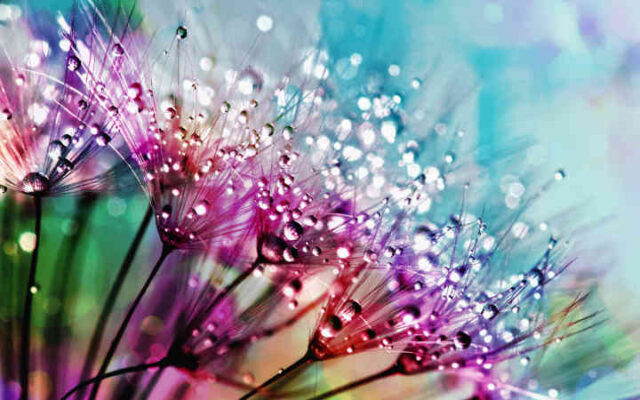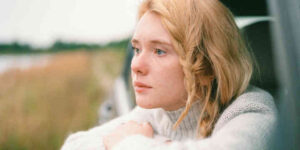“Life is full of beauty.
Notice it.
Notice the bumble bee, the small child, and the smiling faces.
Smell the rain, and feel the wind.”
Ashley Smith
Does beauty tell us anything about God?
What makes something beautiful?
There are many different kinds of beauty. Sunsets and scenery, flowers and trees. People’s faces and bodies. Music and art, film and dance, and novels. Some may find beauty in a move in sport or in chess. A philosophical argument or a mathematical proof will be beautiful to some.
Each of these is beautiful if it gives us pleasure to look at it or hear it. It will evoke positive emotions.
“Beauty is in the eye of the beholder”, they say. And it’s obviously true that people can find different things beautiful. Maybe we see colour differently. Someone’s face, a scenic view or a film may evoke different response, perhaps trigger different memories, and so we might feel it is more or less beautiful.
Certainly there are also cultural differences. Westerners tend to have different perspectives on beauty to those from the Middle East and East Asia.
Yet there is also a science to beauty. Studies show that most people find symmetrical things more beautful than unsymmetical – for example faces or buildings. Different colours are known to evoke different responses, and most of us find some colour combinations attractive and others ugly. Most people appreciate the beauty of flowers or sunsets.
Beautiful things tend to have proportion and balance and structure. And it turns out that we tend to find moderately complex objects most beautiful – very plain or very complex patterns and shapes are generally seen as less beautiful.
So it seems that beauty is something objective about the world that we appreciate similarly, but with some cultural and individual differences.
Beauty points to God?
So humans appreciate beauty. But why did it happen this way? How do humans happen to have an aesthetic sense?
Did God make us to appreciate beauty? Or did evolution just happen to make us as beauty-appreciating beings?
One way to look at it is to argue that if everything is the result of random, impersonal processes which promote survival, then it seems highly unlikely that evolution would result in humans who appreciate values like beauty which don’t promote survival.
On the other hand, if a God who appreciated beauty wanted to give his creation the gift of beauty, that would explain it.
So, the argument goes, our appreciation of beauty is more likely to occur if the world was created by God than if it wasn’t.
Note that this argument, based on the human ability to appreciate beauty, is different to the argument that the existence of beauty, like design, is only possible with God.
…. or does it?
“Not so fast!” say evolutionary biologists and psychologists. For they think they can explain beauty in terms of survival and natural selection.
It seems it all starts with sex. Which males are able to mate most successfully, by being most attractive to females? And which females do they prefer? Studies suggest that “males typically compete among themselves for access to females, whereas females tend to be choosy and mate only with preferred males.” So what guides these choices?
Natural selection will tend to favour those animals which choose strong and prolific mates. The deer with strong antlers to fight off enemies will be more likely to pass on its genes. A healthy fertile female will be more likely to bear healthy children.
It is thought that some physical characteristics are indicators of good genetics and can guide choices. For example, higher levels of testosterone can lead to certain facial or other features, which can be recognised and selected by a female looking for a good reproductive mate. And so those characteristics are seen as attractive, and attractive animals gain a reproductive advantage and their genes are more likely to be passed on.
Since the same processes were assumed to be at work in humans, our perception of beauty can be explained genetically in terms of evolutionary biology.
But then …..
But now evolutionary biologists say natural selection isn’t as important a factor in mating behaviour as once thought. Sexual selection, they say, is often stronger than natural selection.
They say it works like this. Animal species can appreciate colour, symmetry, and other aspects of beauty. So some species develop characteristics (e.g. colouring, size, adornments) which attract mates even though they may not confer a survival advantage, and may even make survival more perilous.
For example, a peacock’s tail makes the male bird more cumbersome and vulnerable, but it attracts females and gives the male a reproductive advantage. And this advantage leads to their genes being passed on more often.
So, some evolutionary scientists believe, mate selection is based on arbitrary standards of attractiveness.
It is hard for a layperson like me to pick up all the different viewpoints, but it seems that the consensus might now be that attraction (sexual selection) and fitness (natural selection) work together.
The same processes go on in human reproduction, it seems.
Men prefer women with attractive faces and bodies (that’s hardly news!). Women have similar preferences, though they aren’t as strong and as obvious as for male preferences. Men may opt for short term attraction, while women may choose men who are likely to make better fathers and companions rather than better reproducers. Attractive people do better in life in all sorts of ways.
So sexual attractiveness is almost certainly more important than natural selection for humans. And so, it is argued, beauty serves an evolutionary purpose, contrary to the theistic argument.
Other types of beauty
Sexual selection may explain why people appreciate human beauty, but what about other forms of beauty, such as landscapes or art? Here the arguments become a little more tenuous (to me, at any rate).
Landscapes and scenery
Most people find certain landscapes beautiful, and being in or viewing such natural landscapes has mental and physical health benefits. Some say the scenes we find beautiful are like the safe and productive Savannah landscapes humans evolved in. I find this a bit of a stretch – many attractive landscapes (mountains, waterfalls, beaches) are nothing like savannah.
Others point to how being in nature has health benefits, notably by taking us away from stress and pressure and allowing us to relax. And so this makes us appreciate the natural world more. This seems to make more sense (to me), though it would seem that any environment that allows us to slow down might serve the purpose.
Finally, it might just be that we enjoy any aesthetic pleasure, which includes looking at an attractive landscape and that is sufficient explanation. It makes us feel good and that is its own reward.
So it isn’t so clear to me how evolution explains our appreciation of beautiful scenes.
Art
Not all art is “beautiful”, of course, but we definitely find some some paintings and photographs (and houses too, for that matter) beautiful. The science of neuroaesthetics points to factors like the form (colours, shapes and movement) that is pleasing to the senses, plus the emotions it evokes in us, and the meaning we get from it. Some say we also find beauty in something done well.
There are several evolutionary explanations for why we create and appreciate art – perhaps art helps community or communication, or perhaps it’s all about sexual attraction. Perhaps skills we developed in tool-making or to understand visual landscapes (and so be better hunters) led to art as a by-product.
And presumably art was once about those things, but has long since taken on a cultural life of its own. But nevertheless, it is said, there is an evolutionary explanation for our art appreciation. But the multiplicity of explanations makes all of them somewhat doubtful.
In summary
So all these ideas for an evolutionary origin to our aesthetic sense come down to one of three explanations:
- Our aesthetic sense arose as a natural selection adaptation that assisted survival.
- It arose as a result of sexual selection and is somewhat arbitrary.
- It is an evolutionary by-product of some other natural selection adaptation that assists survival.
So where does this leave the argument from beauty?
It isn’t easy to evaluate the two sides to this argument from beauty and our aesthetic sense.
It seems true that there is an evolutionary explanation for our sense of beauty in potential mates. But the explanations of why appreciation of other forms of beauty seem somewhat contrived.
As two evolutionary psychologists said: “inventing evolutionary hypotheses can often be a ‘seductively easy exercise’.”
So it seems to me to be true that humans with an appreciation of beauty are more likely if God created the world than if there is no God. But I don’t feel it is a very strong argument.
Photo of purple silk flowers by Anthony.




